Meet the Thanksgiving turkeys — and the Oregon farmers that raised them
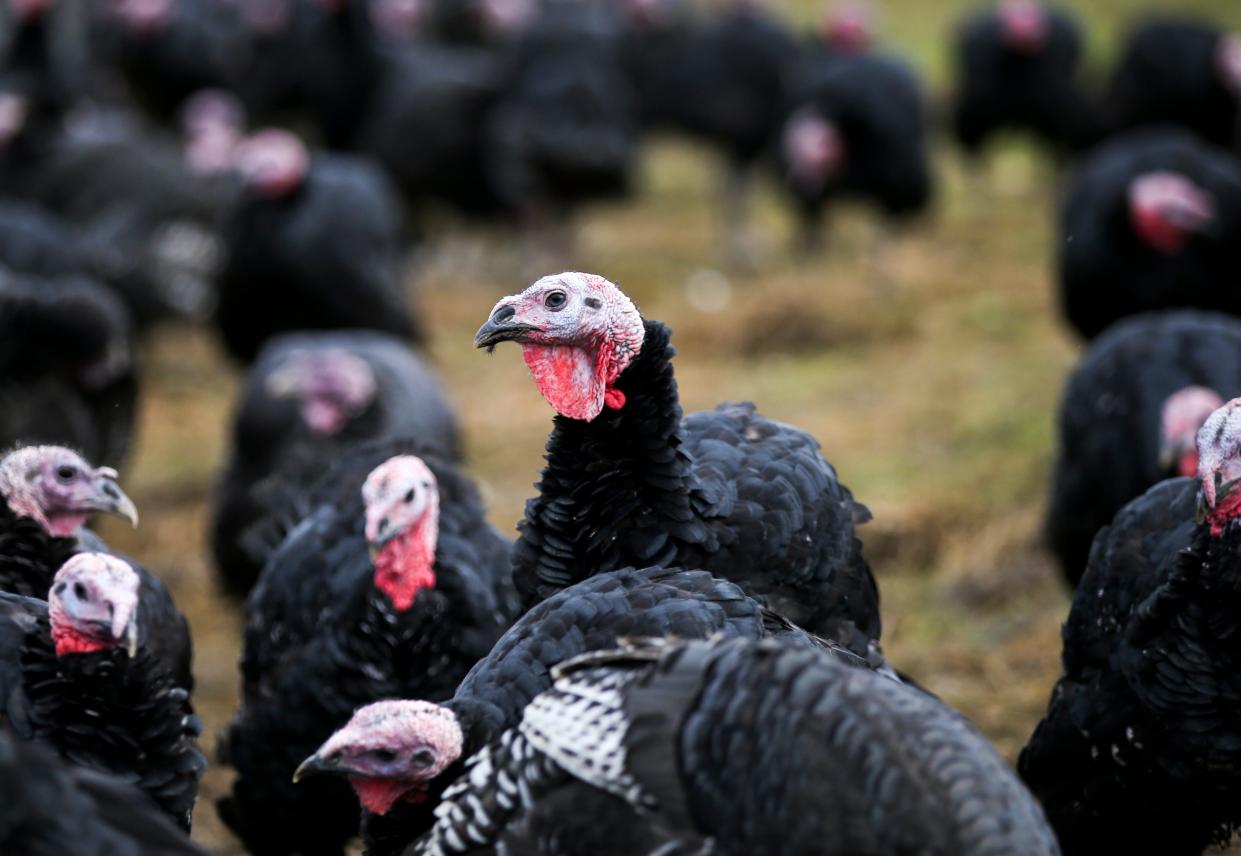
They are the centerpiece of most Thanksgiving tables: “the bird.” The turkey.
Turkeys fly off the shelves this time of year. But the work of raising them happens year-round.
Some turkeys on Oregonians’ plates this year will have been raised right here in the Willamette Valley, at Champoeg Farm.
Owner Mark Anderson is a seventh-generation farmer. His family history in the valley dates back to the 1800s and once included ownership of the land that is now Champoeg State Park. Anderson raises his turkeys just down the road from where his great-grandparents once herded them.
The business of bird
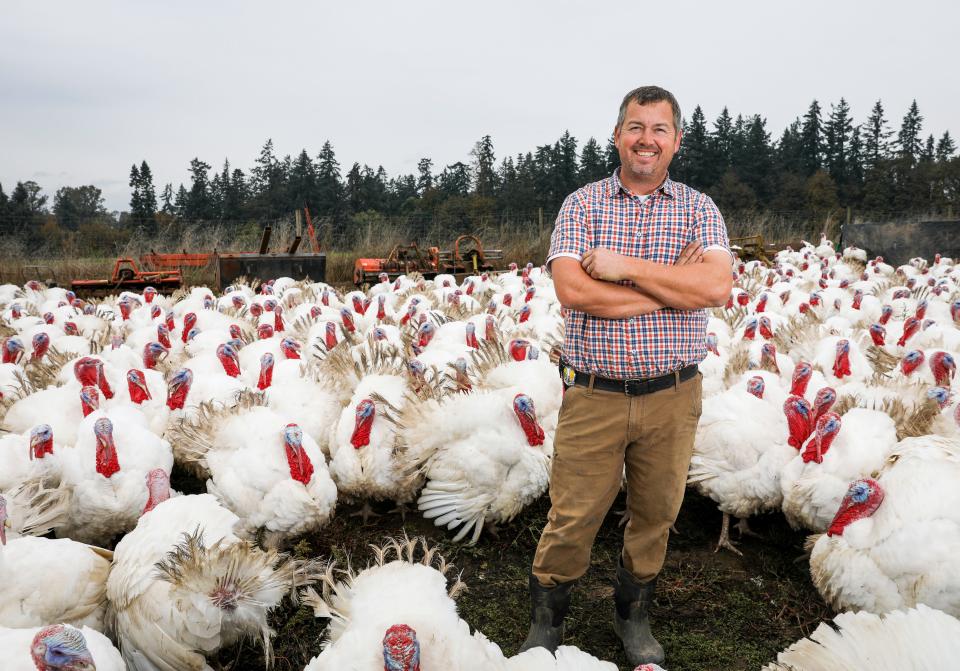
Anderson sold 800 turkeys for Thanksgiving in 2021. He expects to exceed that this year.
"Right now, it looks like we're going to be doing over 1,000 birds," he said. "It's gonna be intense."
Anderson's practices aren’t that different from his ancestors'. Champoeg Farm birds are pasture-raised, which means the older ones spend their days in open fields. Anderson and his team move the birds every couple of days to give them fresh ground and allow the waste they leave behind to fertilize the soil.
"Our whole thing is we don't have barriers for the birds, and we're trying to remove barriers to consumers," Anderson said.
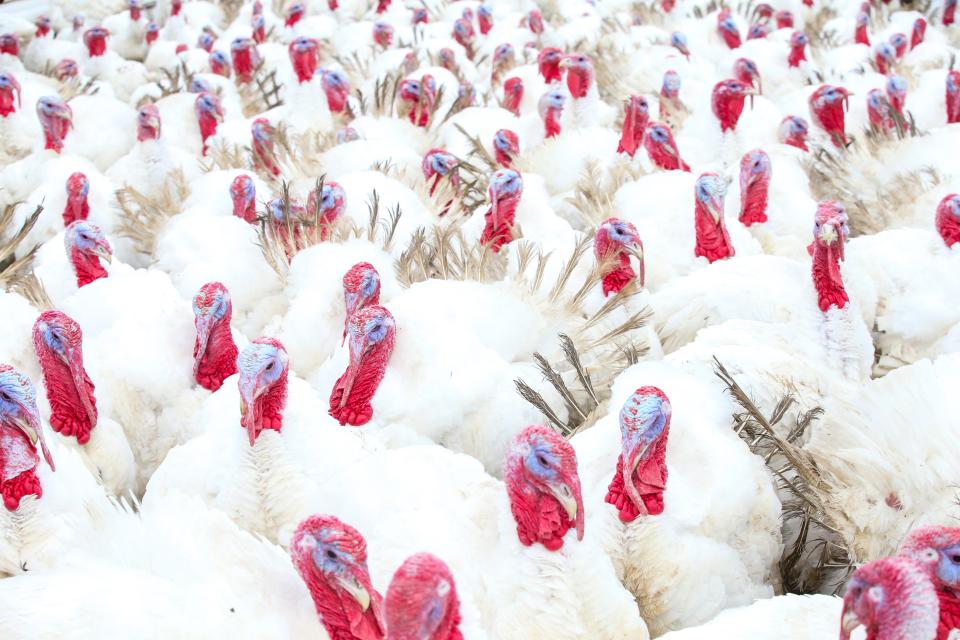
There are two kinds of turkeys on this farm: one is the broad-breasted white. These ones aren’t your Thanksgiving birds. They will be processed into different cuts, sold separately.
These birds don’t have names; there are too many, and they’re hard to tell apart. But they know Anderson. When he whistles and calls out, “Come here, boys,” they gather around, a sea of white feathers and a chorus of gobbles.
On the other side of the farm, the Thanksgiving turkeys dominate their field. These ones are black — in species and in color.
And they’re “vicious little creatures,” Anderson said. “They’re nasty.”
One job as a turkey farmer is breaking up fights. It doesn’t happen too often, Anderson said. But it’s something to look out for.
Juan Gonzales doesn’t mind the birds’ hot tempers. He said he even gets a little attached to them when they’re young.
“I like working with animals,” he said.
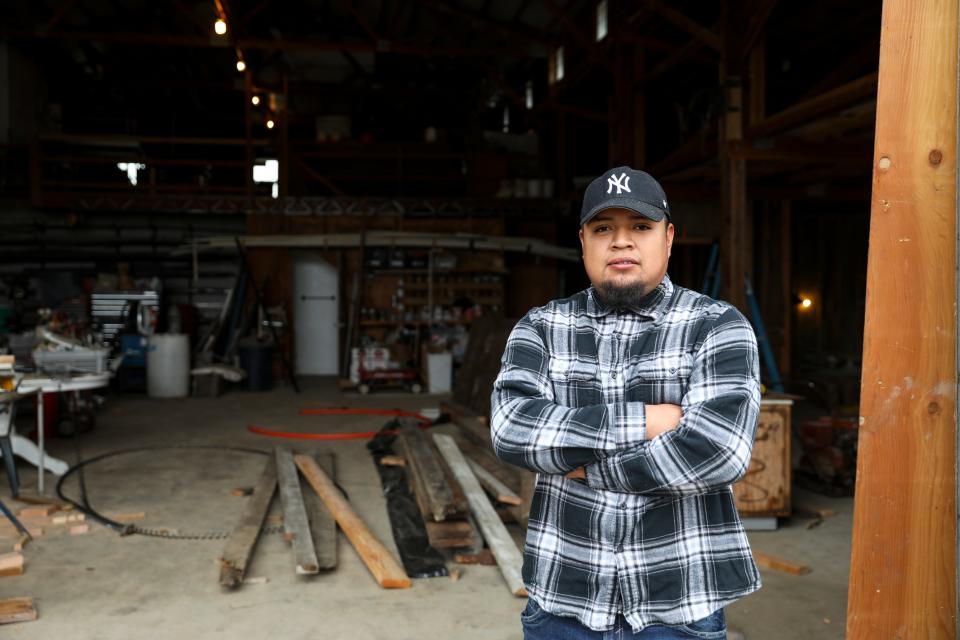
The 23-year-old has worked at Champoeg for two years. He’s the bird guy, responsible for their daily care. He feeds them, cleans the houses they sleep in, and moves the enclosure that follows them around the pasture to protect them from predators.
In preparation for Thanksgiving this year, though, he has a different job. He, Anderson and Andrew Shuler were busy all November building and preparing a new storeroom.
Construction is part of farming, too. So is mechanical work. That’s Shuler’s job. He’s the farm’s resident handyman.
Shuler and Anderson grew up together. Shuler has several professions before arriving at Champoeg: as a chef, as a fisherman.
“I did a whole bunch of different stuff,” he said.
Shuler landed at Champoeg four years ago and has done every job there is to do. At a poultry farm, that includes slaughtering and processing the birds.
“It’s not that bad,” he said.
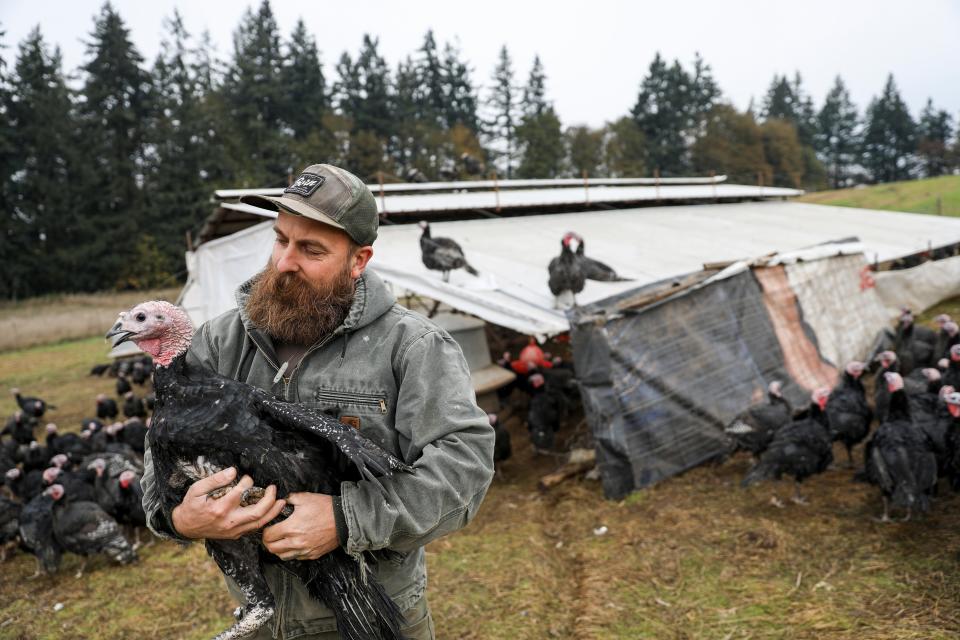
Even Gonzales, who bonds with the young birds, said processing got easier after the first time. It still is, sometimes. But he doesn’t think about it as much.
Thanksgiving birds are just a part of the business. Most turkey consumed in the United States is sold and eaten as deli meat, Anderson said. He built the processing plant in 2014 in part to keep up with demand.
Turkeys aren't the only birds on the farm. Champoeg also raises geese, chickens and ducks, depending on the season.
Every part of every bird turns into something. The pieces that can't be sold for human consumption can be made into dog food. Benedict, the farm's resident Black lab, is the pet food product tester.
A short, sweet life
Champoeg birds are raised on the farm, but they’re not born there. These birds are domestic imports.
Most come from North Carolina, Anderson said. They arrive at just a few days old and spend the first few weeks growing and eating from the safety of a pen.
More:How to give back, get help this holiday season in the Salem area
Once outside, the broad-breasted turkeys can grow to 50 pounds. Most are toms, or male birds. They’re heavier overall, and meatier, Anderson said.
The holiday birds, meanwhile, are mostly hens. They have a smaller frame, but gain weight more evenly. The meat is better distributed and looks better on a table.
The birds spend about four months outside. They live about six months total. But they’re a sweet six months, Anderson said, which makes for a delicious turkey.
“The birds are happier,” Anderson said. “It really affects the flavor.”
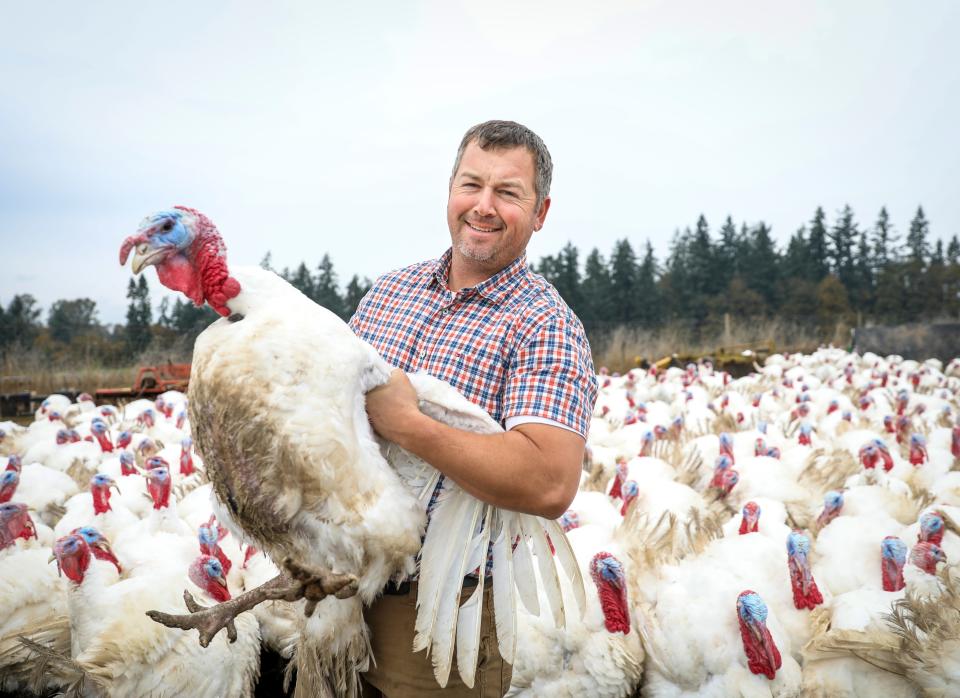
Shannon Sollitt covers agricultural workers through Report for America, a program that aims to support local journalism and democracy by reporting on under-covered issues and communities. Send tips, questions and comments to ssollitt@statesmanjournal.com
This article originally appeared on Salem Statesman Journal: Over 1,000 Thanksgiving turkeys raised in Willamette Valley are expected to sell

